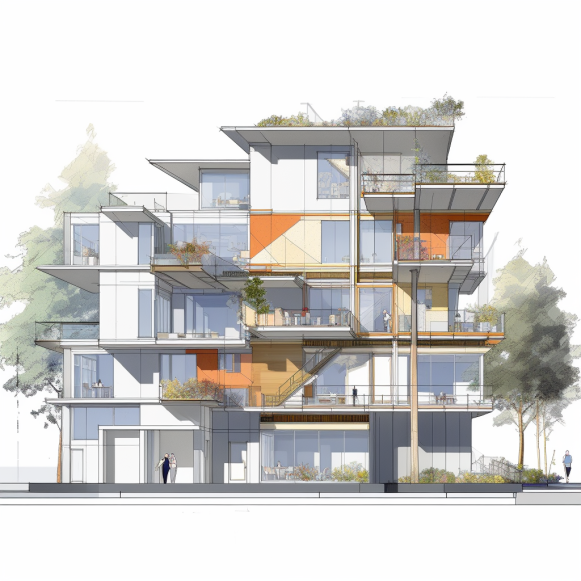4 things homebuyers can ask for that could significantly drop the interest rate and monthly payment, according to the president of a mortgage bank who’s been helping borrowers for over 30 years

Our experts answer readers’ investing questions and write unbiased product reviews (here’s how we assess investing products). Paid non-client promotion: In some cases, we receive a commission from our partners. Our opinions are always our own.
- Shmuel Shayowitz says buyers can negotiate down their mortgage rate at the closing.
- They just have to understand the risks associated with each option.
- Buydowns, temporary buydowns, and interest-only mortgages are some options.
High interest rates are dampening housing-market activity.
With the average 30-year fixed mortgage rate above 7%, existing home sales slowed to their slowest year-on-year pace in 13 years in September.
People shouldn’t be afraid to buy a house at current rates if they can afford it and a bank will qualify them, according to Shmuel Shayowitz, president of Approved Funding, a non-depository mortgage bank founded in 1987.
Buyers looking for properties for profit and cash flow rather than a primary residence may not want to buy now, he says. However, if you spend the same amount on rent as you would on a mortgage payment, purchasing may still make sense.
“It’s very important for people to know whether they really can afford a house or they’re pushing themselves to do something that they shouldn’t because there’s nothing wrong with renting and saving up for a larger down payment or doing things when the market is a little bit more sensible,” he said. “At the same time, unfortunately, home prices continue to go up because there’s no inventory.”
Buyers may also be in a better position to negotiate on lingering listings in a stagnant market. According to Shayowitz, this negotiation can even include lowering your mortgage rate.
four things to think about
A permanent buydown can help you lower your interest rate. This is when a payment for discount points is made during the closing. These points can then be applied to the interest rate.
Because interest rates fluctuate, how much you can save depends on the loan amount, the bank, and the day. However, he pointed out that you can buy it down by nearly 1.25% on average.
The buyer can request that the seller pay for the buydown as a concession when negotiating the closing of a property. In other words, the seller makes a one-time payment that is held in escrow and used to permanently reduce the interest rate. He pointed out that this is more likely when a property is overpriced or the seller is incentivized to negotiate. Some builders may include this as a perk in new construction.
A permanent buydown can be expensive depending on the loan size because one discount point equals 1% of the amount borrowed.
A temporary buydown, which has become more popular in the last year, is a less expensive option, he says. It can reduce the rate for one to three years, depending on the terms chosen, similar to a buydown, buying time to ride out a high interest rate environment.
An adjustable-rate mortgage (ARM) is a more common option that will lock in a rate for the term chosen and then fluctuate annually based on the rates at the time. According to him, depending on the term, it can reduce your rate by about 1%. However, there are risks that borrowers should be aware of, primarily the possibility that the interest rate will rise once the term expires.
Finally, for a 10-year term, an interest-only mortgage means that your monthly payments cover the interest but not the principal. It reduces your monthly payments. Paying the bank to live there may not seem like a good idea at first. However, you can pay a little extra on the months you are able, and it will be applied to the principal.
“It’s kind of no different than paying rent, really, if you think about it, because with rent, you’re not building any equity, you’re not paying down any principal,” he said.” You are literally paying the cost of living in the property. So taking out an interest-only loan is the same thing.”
Shayowitz emphasized that the caveat to all of these options is that a person must understand the various risks associated with these programs. Otherwise, they may find themselves in a difficult situation a few years down the road. For example, once the terms of an ARM and a temporary buydown expire, the rate may fluctuate, and you may be unable to afford the monthly payments if rates rise.
A borrower could improve their chances of getting the best terms and the lowest available rate by contacting a mortgage broker, he said, because they have extensive knowledge of the various types of lenders.
They are more likely to understand which lenders are offering the best rates and what would be best for their specific situation, he added. If you’re a first-time homebuyer or have bad credit, for example, one lender may be better than another. Some lenders have incentive programs specifically for service members, teachers, and police officers, he noted. Other banks reward depositors by providing a rate reduction in exchange for keeping a certain amount in your account.
Furthermore, community banks and credit unions with a depository institution can, in theory, develop their own program, he said. Finally, in exchange for referring borrowers, mortgage brokers have access to wholesale rates or discounts, he added.





